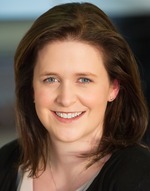|
|
Thursday, 18th April 2024 |
| CFA: the gold standard in investment |
|
| As over 500 Irish investment professionals prepare to sit their CFA exams in early June CFA Society Ireland president Caitriona MacGuinness and board member Joe Kavanagh look at what it takes and what it means to obtain the CFA Charter, and discuss the more prominent role the society is now playing in the development of IFS policy in Ireland. |
What persuades aspiring young investment professionals to spend an estimated 900 hours in intensive study over three or four years to become a Chartered Financial Analyst charterholder? | | Caitriona McGuinness |
The recently-retired Chief Executive of the National Treasury Management Agency, John Corrigan, probably summed it up best when he told CFA Society Ireland’s 2013 charter awards lunch: “When you deal with a CFA anywhere in the world then you know you are dealing with a professional.”
The Chartered Financial Analyst (CFA) credential has become the most respected and recognized investment designation in the world over the past 50 years. The first exam was offered in the US in 1963 and since then the exam designation has slowly come to prominence as one of the world’s most respected and recognised investment qualifications. The first CFA exam in Ireland was held in 2000 and since then the number of candidates in Ireland has grown from an initial 20 to now over 500 annually.
So on the first Saturday of June more than 500 young investment professionals will sit down in a hall in the RDS in Dublin for what is probably the most searching academic test they will ever experience. Those 500-plus candidates in Ireland are just a small portion of the 150,000 CFA candidates in 189 test centres in more than 80 countries to sit the same exam on the same day, an awesome logistical challenge.
The CFA programme is divided into three levels. The Level I exam consists of basic knowledge and comprehension questions focused on investment tools. The Level II exam emphasises more complex analysis, along with a focus on valuing assets. The Level III exam requires synthesis of all the concepts and analytical methods in a variety of applications for effective portfolio management and wealth planning. | | Joe Kavanagh |
The curriculum is organized into 10 general topic areas that provide a framework for making investment decisions:
• Ethical and professional standards
• Quantitative methods
• Economics
• Financial reporting and analysis
• Corporate finance
• Equity investments
• Fixed-income investments
• Derivatives
• Alternative investments
• Portfolio management and wealth planning
The CFA programme is offered in a self-study format and this requires a high level of commitment from candidates. But while there are hundreds of candidates in Ireland and thousands around the world, it is a fact that the failure and attrition rate among candidates is high and that those who complete the programme and obtain their charter are the cream of the crop.
Historic pass rate analysis suggests that over half of those that sit the exam at each level fail every year. Globally, a quarter of those who register to study for the CFA do not turn up for the exam. The programme of study is so arduous that many do not feel ready. Only one in five people who start the qualification become CFA charter holders.
Nobody should underestimate what is required to complete the CFA programme. There are endless hours of study, essays to be written and projects to be completed and you really have to be rigorous in organizing your time. There is no doubt that your social and family life is affected by the challenge but the rewards at the end of the process justify all the hard work you need to put in.
So why do people out themselves through such a rigorous test?
30-year-old Frenchman Zakariae Kacem took the Level 2 CFA examination in June and admits to finding the Level 2 course tougher than Level 1. “Having the mathematical and technical background was helpful, of course, but to move ahead in the industry I felt I needed more. That’s why I decided on the CFA course,” Zakariae says.
Even with a degree in Economics & Finance, followed by a CIMA qualification, 35-year-old Thomas Plunkett sees a CFA charter is the gold standard qualification. Thomas admits candidly that the course - he is at Level 2 - is very tough. “There’s so much material that you have to absorb, it’s the volume of material that is the main difficulty,” he said. “But at the end of the process, being able to put CFA down on a CV will be of huge benefit,” he says.
CFA Society Ireland now has a membership of over 300 charterholders and a further 200 local investment professional members. The society is a national society of investment professionals and seeks to represent all investment professionals, and makes no distinction between charterholders and non-charterholders in our membership policy.
The society makes a determined effort to provide educational programming to the society membership through zero-cost lunch and evening events where local and international speakers present market-relevant topics. This is a big plus for our members, given the increased focus on Continuous Professional Development hours placed on many professionals by employers and regulators.
CFA Society Ireland is also now playing a more prominent role in communicating the views of the investment industry to policymakers. Last year, the Minister for State at the Department of Finance, Simon Harris TD, presided at our charter awards lunch, and this subsequently led directly to the CFA being invited by Minister Harris to contribute to a round table discussion on a draft strategy for the development of financial services in Ireland. We were delighted to take part in this process, and it is a measure of the standing of the CFA that Minister Harris extended his invitation. |
Caitriona MacGuinness CFA is President of CFA Society Ireland and obtained her CFA charter in 2007. Joe Kavanagh CFA is a member of the board of CFA Society Ireland.
|
|
|